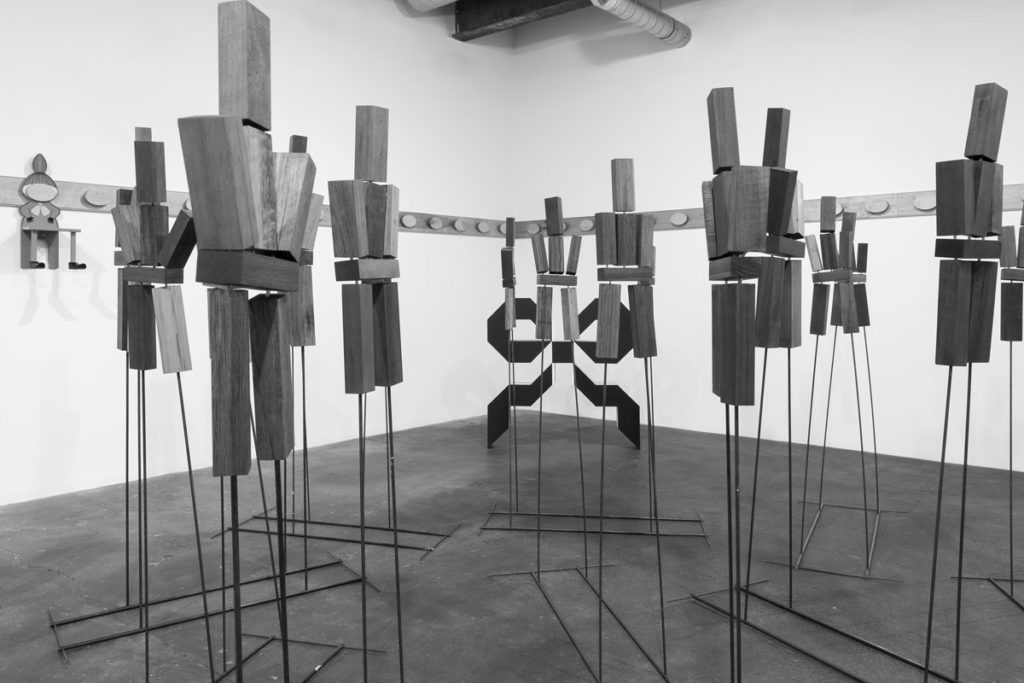Anna Helm, Lisa Lapinski, Hirsch Perlman
Review by Gretchen Gasterland-Gustafsson
Midway Contemporary Art
Sept 16–Nov 4, 2017

Midway Contemporary Art packs a densely installed interplay of influence and independence in a show premised on mentorship. Hirsch Perlman mentored Lisa Lapinsky who in turn mentored Anna Helm, all of whom work with wood in various forms, including paper. The paper works, messy photographs of birdcage newspaper by Helm and quiet but violent architectural drawings of hominid plank figures spilling their nuts and bolts by Perlman are less compelling than the sculptural work, but add thematic depth. Lapinsky’s work literally wraps the show with Little My #3 (Shaker board) and ties it with a free standing waist-high 8-bit stylized wooden bow that along with Perlman’s crowd of blocky small and larger wooden bodies in the center of the room titled Humanitas Equanimitas evoke a hand made wooden videogame landscape that the viewer can navigate and affect. Perlman’s simple block figures bring his drawings to life, tottering on thin metal rods that react to the viewer who moves through their tight grouping and could easily topple them. Little My #3 (Shaker board) surrounds the room with a homey, hand-crafted, oiled wooden chair rail that features only one chair: a commercially produced children’s seat in the form of the angry and realistically childlike “Little My” character from Tove Jansson’s beloved Moomin comics. Little My’s face is cut out to accommodate the oval form of the chair rail on which she is hung. A temporarily idle punishment chair for an unruly child, but so whimsical that it produces fascinating cognitive dissonance against the blank faces of the chairless ovals remaining on the rail, awaiting their own punishment furniture or Little My’s Pacman-like progress down the row. Continuing the theme of childhood, Helm’s carefully crafted Unhushuwule Picnic Table features a hand-painted checkerboard tablecloth shrouding the dimensional letters of the title, a child’s creative spelling of the word “unusual.” Unhushuwule Picnic Table contributes a key theme of repetitive effort but ultimate failure to conform seen throughout the works. Perhaps this is the way successful mentorship proceeds, with the failure of conformity, in even violent ways, expanding artistic discourse.
